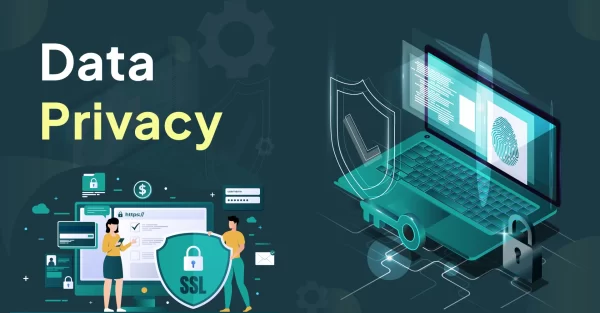The Imperative of Data Privacy: Safeguarding Your Digital Self
In a world where data is often described as the new gold, the concept of data privacy has never been more crucial. Our personal information ranging from basic contact details to intricate behavioral patterns—is being collected, analyzed, and utilized in ways that were once the stuff of science fiction. But what does data privacy really mean in this high-tech era, and why should it be a top priority for everyone? Let’s embark on an in-depth exploration of data privacy, why it’s so important, and how you can effectively shield yourself from potential threats.
Defining Data Privacy: More Than Just a Buzzword
At its core, data privacy—or information privacy—refers to the protection of personal data from unauthorized access and misuse. It involves ensuring that information collected about individuals is kept secure and used responsibly. This includes how data is gathered, stored, and shared, with a focus on maintaining control over one’s personal information.
1. Guarding Against Identity Theft:
Identity theft remains one of the most severe risks associated with inadequate data privacy. With access to personal information like Social Security numbers, bank account details, or even medical records, malicious actors can commit fraud, make unauthorized transactions, and wreak havoc on your financial stability. Effective data privacy practices can prevent such breaches and protect your identity from being stolen or misused.
2. Preserving Autonomy and Freedom:
In the digital era, personal information can reveal extensive details about our lives, from our daily routines to our preferences and habits. This information, if not properly protected, can be used to manipulate decisions, influence opinions, or even invade personal spaces. Data privacy ensures that you maintain control over who sees your information and how it’s used, thus preserving your autonomy and personal freedom.
3. Shielding Against Unwarranted Surveillance:
The balance between technology and privacy has always been delicate. Governments and corporations increasingly have the capability to monitor and analyze vast amounts of data. Without robust privacy protections, there’s a risk of unauthorized surveillance that can infringe upon personal freedoms and civil rights. Safeguarding data privacy helps prevent such intrusions and upholds democratic values.
4. Ensuring Data Accuracy and Integrity:
Accurate data is essential for making informed decisions, whether in personal finance, healthcare, or employment. Misuse or mishandling of personal data can lead to incorrect information that may adversely affect your opportunities and services. By prioritizing data privacy, you ensure that your information remains accurate and that errors or fraudulent data do not compromise your life.

The Pillars of Data Privacy:
1. Consent and Transparency:
Consent is the bedrock of data privacy. You should be fully aware of and agree to how your data is collected, used, and shared. Transparency from organizations is crucial; they must provide clear privacy policies and communicate their data handling practices in an understandable manner.
2. Data Minimization:
The principle of data minimization states that only the minimum amount of data necessary for a specific purpose should be collected. Excessive data collection not only increases the risk of misuse but also complicates data management. Organizations should adopt this principle to minimize potential exposure and enhance privacy.
3. Robust Data Security:
Securing data against breaches and unauthorized access is a fundamental aspect of data privacy. This involves implementing strong encryption methods, secure storage solutions, and rigorous access controls. Regular security audits and updates are also essential to protect against evolving cyber threats.
4. Respect for User Rights:
Individuals have the right to access their personal data, request corrections, and demand its deletion if desired. Organizations must respect these rights and provide clear mechanisms for users to manage their information. Ensuring these rights are upheld fosters trust and enhances privacy.
Practical Steps to Strengthen Your Data Privacy:
- Create Strong, Unique Passwords:
Establishing robust, unique passwords for each of your accounts is essential for online security. Steer clear of easily guessable information, and consider using a password manager to craft and securely store complex passwords. - Enable Two-Factor Authentication (2FA):
Add an additional layer of protection with two-factor authentication, which requires a secondary verification method beyond your password. This could be a code sent via text, an authentication app, or biometric verification. Activating 2FA helps shield your accounts from unauthorized access. - Exercise Caution on Public Networks:
Public Wi-Fi can be a hotspot for cyber threats. Avoid accessing sensitive data or making financial transactions over these networks. When needed, use a Virtual Private Network (VPN) to encrypt your connection and safeguard your information. - Regularly Review Privacy Settings:
Periodically check and adjust the privacy settings on your social media profiles and other online accounts. Tailor these settings to control the visibility of your personal information and manage who can view or access your data. - Stay Alert for Phishing Scams:
Phishing attempts often come disguised as misleading emails or messages aiming to extract personal information. Be wary of unsolicited communications and refrain from clicking on dubious links or downloading attachments from unfamiliar sources. - Monitor Financial Transactions:
Keep a vigilant eye on your bank and credit card statements for any signs of unauthorized activity. Regular checks enable you to swiftly detect and address potential fraud, minimizing its impact on your financial health.
Adapting to the Future of Data Privacy:
As technology evolves, so does the landscape of data privacy. Emerging innovations such as artificial intelligence, blockchain, and big data offer new opportunities and challenges. Staying updated on the latest privacy practices and regulatory shifts is crucial for navigating these changes and protecting your information.
In today’s interconnected world, data privacy transcends technicalities—it’s a fundamental right and a key aspect of personal security. By recognizing its significance and adopting proactive measures, you can ensure your personal data remains secure and under your control.
Harness the power of data privacy to safeguard your freedom, protect your identity, and maintain authority over your digital life. In this era of information, securing your data is not just advisable—it’s essential.
FAQs:
1. What exactly is data privacy, and why is it so crucial?
Data privacy, often referred to as information privacy, involves safeguarding personal data from unauthorized access and misuse. Its importance lies in protecting against threats such as identity theft, unwanted surveillance, and data breaches. By maintaining strong data privacy practices, individuals ensure they have control over their personal information and that it is used ethically and responsibly.
2. How can I find out if a company is collecting my data?
Companies should outline their data collection practices in their privacy policies. Look for detailed explanations on the types of data collected, the purposes for which it is used, and any sharing practices. If the privacy policy is unclear or missing, it may be cause for concern. Additionally, review and customize privacy settings on your apps and online accounts to understand and manage the data you are sharing.
3. What are the fundamental principles of data privacy?
Key principles of data privacy include:
- Informed Consent: You should be aware of and agree to how your data is collected and used.
- Transparency: Organizations should clearly communicate their data handling practices.
- Data Minimization: Only the essential data needed for specific purposes should be collected.
- Data Security: Effective measures should be in place to prevent unauthorized access and breaches.
- User Rights: You should have the ability to access, correct, and delete your personal data.
4. How can I strengthen my online data security?
To bolster your online data security, follow these steps:
- Craft Strong, Unique Passwords: Develop robust, distinct passwords for each account and manage them using a password manager.
- Enable Two-Factor Authentication (2FA): Add an extra layer of security to your accounts with two-factor authentication, which requires a secondary verification method.
- Be Wary of Public Wi-Fi: Avoid sensitive transactions over public Wi-Fi. Use a Virtual Private Network (VPN) to secure your connection.
- Regularly Update Privacy Settings: Periodically review and adjust the privacy settings on your social media and online accounts to control what information is shared and with whom.
- Be Cautious of Phishing Scams: Stay vigilant for phishing attempts and avoid engaging with suspicious emails, links, or attachments.
- Monitor Financial Transactions: Regularly check your financial statements for any unauthorized activity to quickly address potential fraud.
5. How can I determine if my data has been compromised in a breach?
Organizations usually notify individuals if their data has been compromised. You can also use online tools like Have I Been Pwned to check if your email or personal information appears in known data breaches. If you suspect a breach, act swiftly by changing passwords, monitoring accounts, and considering a credit freeze if necessary.
6. What steps should I take if I suspect my personal data is being misused?
- Report the Incident: Notify the relevant company or organization about the issue.
- Change Your Passwords: Update your passwords immediately and enable 2FA where possible.
- Monitor Financial Accounts: Keep a close watch on your financial accounts and credit reports for any irregularities.
- Contact Authorities: Reach out to your bank or local law enforcement if needed.
- Consider Fraud Alerts: Place a fraud alert or credit freeze with major credit bureaus to protect against further issues.
- 7. Are there laws in place to protect my data privacy?
Yes, several laws and regulations are designed to protect data privacy, including:
- General Data Protection Regulation (GDPR): A comprehensive EU regulation that governs data protection and privacy.
- California Consumer Privacy Act (CCPA): Provides privacy rights for California residents.
- Health Insurance Portability and Accountability Act (HIPAA): Protects health information in the U.S.
- Children’s Online Privacy Protection Act (COPPA): Protects the privacy of children under 13 in the U.S.
8. How do data privacy and data security differ?
While related, data privacy and data security address different aspects of protecting information. Data privacy focuses on the rights and policies surrounding the collection, usage, and sharing of personal data. Data security deals with protecting data from unauthorized access and breaches through technical measures such as encryption and secure storage. Both are essential for comprehensive data protection.
9. What role does encryption play in data privacy?
Encryption is essential for protecting data privacy. It transforms data into a secure format that can only be deciphered by someone with the correct decryption key. This ensures that even if data is intercepted or accessed by unauthorized individuals, it remains secure and unreadable.
10. Is it possible to completely safeguard my data from all threats?
While achieving absolute data security is challenging, you can significantly reduce risks by implementing strong data privacy and security practices. Regularly updating your security measures, staying informed about new threats, and being proactive in managing your personal information can help protect your data effectively.




